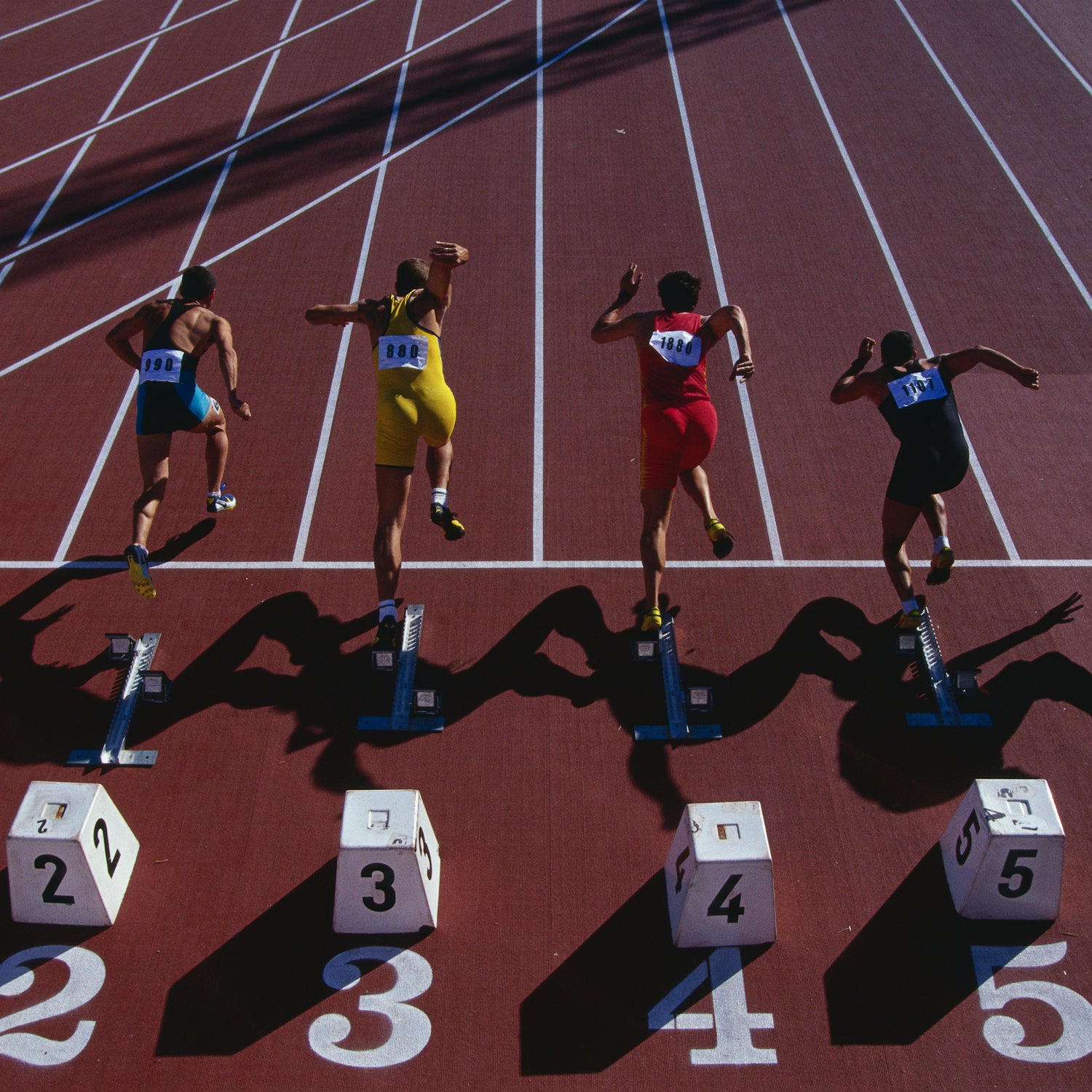On more than one occasion throughout the Rio��Olympics, my friends and family watched events in awe and proclaimed to me, “This can’t be real.” And, on more than one occasion, I told them they were probably right. Doping was a dark cloud that hung low—over the pool, the roads, and the track—throughout the Games. Fans, journalists, coaches, and even athletes themselves questioned extraordinary results.
While the Games concluded Sunday night, doping will continue to be the dirty frame through which we are forced to view sport going forward. Will we ever regain trust in our athletes and governing bodies? What will it take to institute serious, effective change? We picked the minds of a few leading coaches, scientists, and journalists, all of whom are deeply entrenched in the battle for clean sport.
Amby Burfoot
Author of , editor at large at Runner’s World, winner of the 1968 Boston Marathon
The cost of skepticism is enormous. We can’t be sure if we are watching the best athletes or the best drugs. To regain faith, we would need to see several top athletes and their marks overturned by retrospective testing. On the women’s side in particular [where experts speculate that doping may have a larger effect], I would favor discarding all records set before a certain date.
Even so, I’m not sure this is a war that can be won, particularly in an age of micro-dosing, medical miracles, and the coming genetic therapies. I know of at least one brilliant scientist working on pediatric muscle-wasting diseases. His therapy, intended for kids with muscular dystrophy and cystic fibrosis, could also improve athletic performance.
David Epstein��
Author of , investigative reporter for Propublica
For the last decade, every anti-doping technology improvement has been met with equally proficient evasion, such that the proportion of positive tests never changed. Until now. For the first time since I began reporting on doping, there's an advancement—the biological passport—that cannot be easily dismissed. By no means will it catch everyone, but I do think there’s an important message for fans and athletes toward repairing our collective psyche: a��state-sponsored doping operation actually had to of a lab because they were struggling to consistently beat the biological passport.��
Vern Gambetta
Veteran athletic development coach, founder of the
We’ve put an inordinate emphasis on the athletes’ positive tests without going to deeper sources, like an athlete’s coaches and entourage (now called the “performance team”); commercial sponsors who make millions from doped performances (Nike virtually owns track and field); and federations and governments (not just in undeveloped countries but also in nations like the U.S. where some chose to ignore the problem and support coaches complicit with doping).
We also need more transparency regarding the financial arrangement between athletes and their sponsors, coaches, and federations. In my 46 years of coaching, the biggest change I’ve observed is the obscene amount of money at stake, and also, how much money it takes to compete—this creates a big incentive to cheat. [Medalists often gain six-figure endorsement deals; those who miss the podium, or miss qualifying for the Games, just to break even.]��We must also shift the emphasis away from records, many of which were set during eras when doping was rampant, and toward competition. And finally, we need to speak up. Most people involved in swimming and track and field know who is cheating. Clean athletes and coaches cannot rely on corrupt governing bodies; they need to reclaim control of sport by naming names and refusing to compete against cheats.
Alex Hutchinson
Author of , columnist at Runner’s World
I used to be skeptical because I didn’t think drug-testers could keep up with the ever-evolving pharmacopeia of cheaters. But the biological passport has been a huge success. Unfortunately, now I’m skeptical because of rampant corruption at the highest levels of sport—not just in rogue states like Russia, but also in the international organizations that are supposed to be policing sport. Even when the scientists have managed to catch cheaters, apparently we’ve been letting them go.
We’re never going to eliminate doubt or skepticism completely. To get back to a reasonable and sustainable tension between skepticism and optimism—for me, at least—we’re going to need to clean house at organizations like WADA. I don’t know if that’s possible, but I hope so.
Michael Joyner
Physician, expert on human performance at the Mayo Clinic, to Sports Illustrated
Based on the fact that so many recent extraordinary performances have been linked to doping, I do think all exceptional performances are suspect. However, we can’t forget that sometimes records are broken by athletes who, by all accounts, are clean. In order to protect these athletes and regain the confidence of fans, the governing bodies—which at best have turned a blind eye to the problem and at worst are completely incompetent and corrupt—need overhauls. Once the governing bodies are overhauled and coaches and athletes can trust them, we need to embrace more traditional police work alongside biological testing. Just look at the recent big drug busts—they didn’t result from traditional testing but from journalists going undercover and brave whistleblowers.
Mario Fraioli
Former senior editor at Competitor, elite running coach, author of
Trust that has continually been abused over the course of the last few decades may be impossible to re-establish.��But in the spirit of optimism, I’m hopeful that widespread skepticism can help to spur widespread change: the creation and implementation of truly independent testing agencies, the cooperation of governing bodies, and the unification of athletes, coaches and managers who are truly committed to clean sport. The last thing an honest athlete wants is for his or her breakthrough performance to be doubted by fellow competitors, media, and, perhaps most importantly, fans.
Steve Magness
Elite running coach, author of
Regaining confidence in sport will require a deep and thorough cleansing—not just damage control, but going back and taking all the skeletons out of the closet, including all the historical cover-ups. Why? Because many of the athletes who competed in the drug-filled 80s and 90s are now administrators tasked with keeping sport clean. We need their admission and removal in favor of a truly independent body in charge of anti-doping and ethics in sport. We need the people in charge to aid whistleblowers like , instead of treating them like unwanted pariahs. [Magness has previously about the harsh reality of being a whistleblower.]
If we can’t believe in what happens on the track or on the playing field, sport ends. The intrigue is gone. The amazement and captivation of a -esque performance, or of the 10k over 50 years ago, will be gone. Baseball, as troubled as it is, recognized this when Pete Rose bet on the game. Sure, baseball has had criminals, crooks, and cheats, but one of the greatest hitters ever was banned because he put the integrity of the game in jeopardy.
We’ve come to a point where trust is eroded. The governing bodies—IAAF, WADA, and IOC—have violated athletes, coaches, and fans. The only way forward is for everyone involved to come clean and start anew.
��


